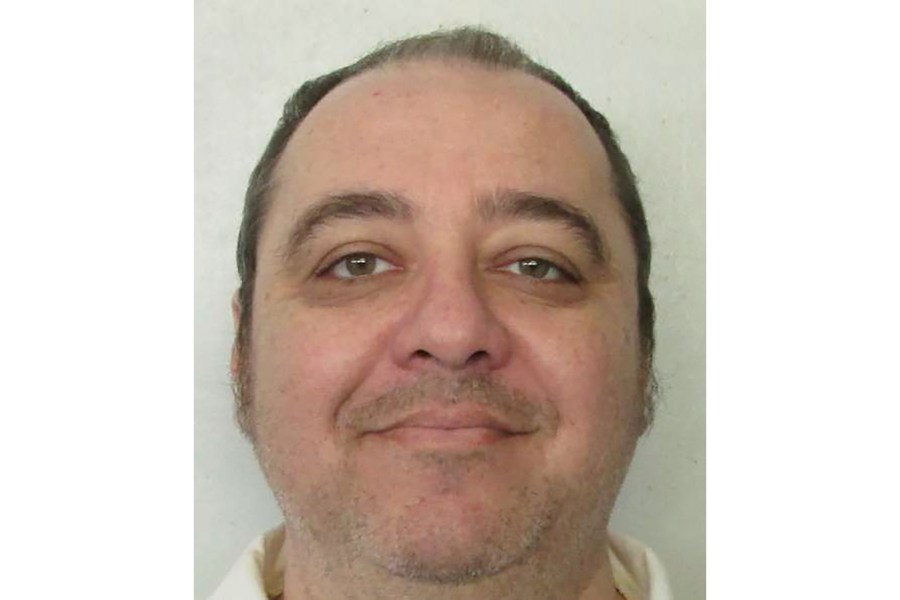Nitrogen manufacturers won’t supply for executions: Report
- 3 major manufacturers say they will not supply for death penalty states
- Kenneth Smith was the first inmate to be executed by nitrogen hypoxia
- Barring nitrogen supplies will pose challenges for death penalty states
(NewsNation) — After Alabama carried out the first nitrogen hypoxia execution, three of the largest manufacturers of nitrogen gas in the U.S. said they will not allow their products to be used for state killings, according to a report released this week.
The Guardian reported three major medical-grade nitrogen gas producers have barred their products from being used in executions by creating protocols that will prevent their nitrogen cylinders from getting to departments of correction in death penalty states.
Companies Airgas, Matheson Gas and Air Products — all major producers of the gas — told the outlet that nitrogen should be used to help lives, not take them.
“Airgas has not, and will not, supply nitrogen or other inert gasses to induce hypoxia for the purpose of human execution,” the company said in a statement to the outlet.
Air Products said that it had established “prohibited end uses for our products, which includes the use of any of our industrial gas products for the intentional killing of any person (including nitrogen hypoxia).”
Matheson Gas said that supplying nitrogen gas for use in executions was “not consistent with our company values,” according to the outlet.
The move by the companies comes as a sharp rebuke to death penalty states, which have been keen on using nitrogen for executions but will likely face more challenges in obtaining supplies.
The use of nitrogen hypoxia to carry out a killing came into the spotlight after it was used for the first time in U.S. history by Alabama on death row inmate Kenneth E. Smith.

Smith was put to death in January despite eleventh-hour efforts by his attorneys who unsuccessfully argued that the state was violating the constitutional ban on cruel and unusual punishment by undertaking an experimental execution method.
While Alabama viewed the execution as a humane success, those who witnessed it felt otherwise.
“Slowly, he (Smith) began to spit mucus, perhaps vomit, came out of his mouth,” Rev. Jeff Hood, Smith’s spiritual adviser, said on “Banfield.” “As I was standing there, he convulsed for minutes. It was absolutely one of the most horrifying things I’ve ever seen.”
Smith was on death row for committing a capital murder in 1988. He’s one of two men convicted in the murder-for-hire killing of Elizabeth “Liz” Sennett, the wife of a deeply indebted preacher who wanted to collect insurance, the Associated Press reported.
Nitrogen hypoxia involves forcing a prisoner to breathe nitrogen, and nitrogen alone, through an airtight gas mask. The procedure leads to oxygen deprivation and death.
Four states currently have nitrogen hypoxia as an option for the death penalty. Alabama, Louisiana, Mississippi and Oklahoma are all considering future use.
Following Smith’s death, legislatures in Nebraska, Ohio and Louisiana introduced bills to adopt nitrogen hypoxia for executions, according to the Death Penalty Information Center, which advocates against the death penalty.
The Guardian reported that only a few companies produce medical-grade nitrogen that has been approved by the U.S. Food and Drug Administration for use with humans. Three of these companies have already banned its use in killings.
The move could create a similar chokehold brought on by a slew of pharmaceutical companies who refused to sell the drugs used in lethal injections, making it almost impossible for states to carry out those executions, according to the Death Penalty Information Center.
According to the rights advocacy group Reprieve, over 60 global health care companies worldwide have taken some form of action to ensure their products are not used in executions.
It is unclear how Alabama obtained the nitrogen it used on Smith as the state has kept the process highly secretive to maintain a supply, according to the Death Penalty Information Center.
The backlash by nitrogen manufacturers has made sourcing difficult.
“Drug manufacturers don’t want their medicines diverted and misused in torturous executions and the makers of nitrogen gas share the same objection: they do not want their products to be used to kill,” Maya Foa, joint executive director of the rights advocacy group Reprieve, said in a statement.










